Switzerland increases efforts against domestic violence
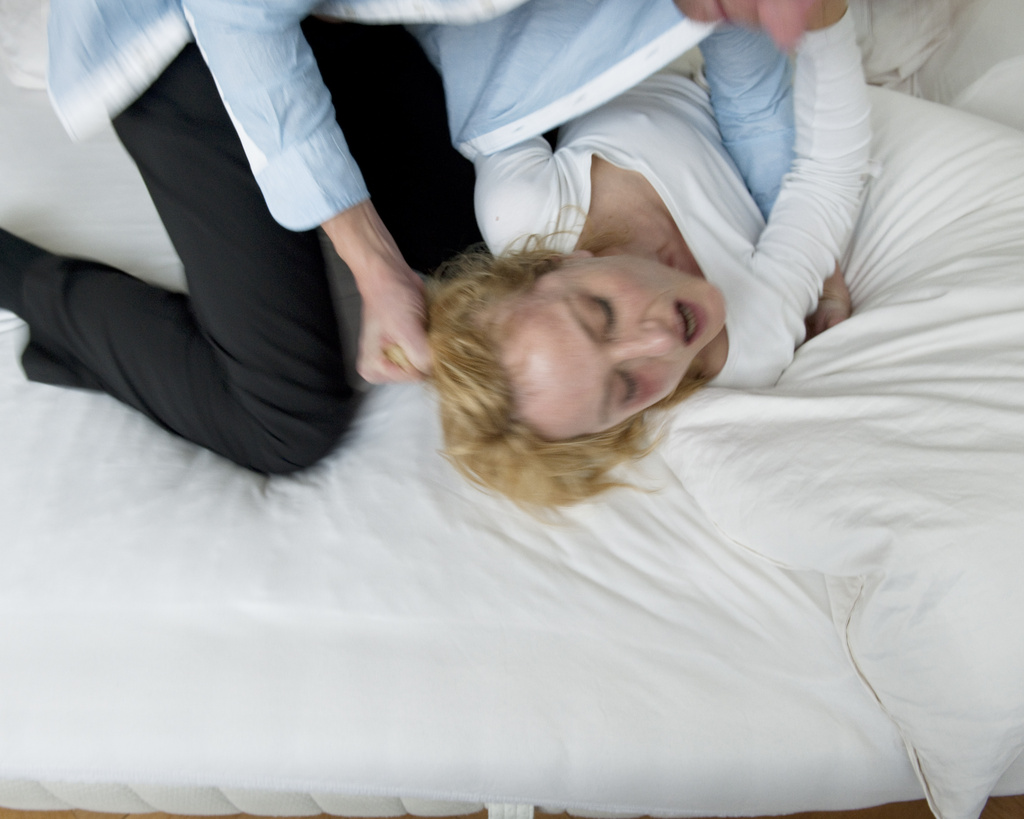
In Switzerland, 18,522 crimes relating to domestic violence were registered in 2018 alone – an average of 52 per day. As of this summer, authorities plan to step up the fight against such abuse.
Just overwhelmed: this is how one man explains to Swiss public television, SRF, why he turned to violence in his marriage, rather than seeking other ways to solve the problem.
The father of three hides his face from the cameras: “I am the culprit,” he says.
But he is also a victim – a victim of verbal abuse, he says, who had been regularly criticised by his wife. “I felt as if I was backed into a corner. She only stopped when I hit her.”
Neither counselling nor couples therapy worked. The violence intensified, with the children caught in the middle of it all. In another fight, he injured his wife. The police, as well as child and adult protection services, then got involved, and the man signed up to a re-education programme.
Intervention
It’s an all-too-common scenario in households in Switzerland and beyond.
But how can violence in the home be avoided? Should those responsible – the large majority of whom are men – be reported to the police, or is it better to avoid bringing attention to the issue for the sake of keeping the peace?
It’s an extremely difficult and burdensome question for the victims of domestic abuse.
Police in Switzerland are obliged to investigate when there are indications of domestic violence, which was officially made a crime in 2004. Instances of abuse include coercion, violence, verbal abuse, the controlling of a partner’s telephone, or the blocking of a bank account.
Criminal proceedings are one way of tackling the issue. But in educational courses, too, men learn how to solve problems in relationships or in the family without resorting to violence.
And from July 2020, new legislation will give authorities more room for action, including the ability to send abusers to such courses as a preventative step, rather than only after a court conviction.
Who are the people involved?
“There is no typical profile of a domestic abuser,” says Jessico Renno, director of a canton Bern educational course to combat violence in marriages, families and partnerships.
That said, two-thirds of all guilty parties are male, and foreigners are disproportionately concerned. According to Renno, “Swiss men are also perpetrators of violence. However, migrants often arrive with a different vision of what a man should be, or they come carrying trauma from war or from tough socioeconomic conditions. This heightens their stress level, as well as potentially heightening the risk of them turning to violence”.
Indications show that educational courses are a good way of stopping violence in relationships: working with the perpetrators in order to protect the victims, as Renno puts it. In total, participants must attend 26 separate sessions. Afterwards, “there are very, very few cases of re-offending”, she says.
Authorities like the Office of the Attorney General or the State Secretariat for Migration are mostly responsible for referring participants to such programmes; they also have the power to make visiting rights or even Swiss residency rights dependent on participation.
The man mentioned above, who appeared on Swiss television to tell his story, signed himself up to such a course voluntarily. For too long, he thought that he and his partner would be able to work things out without help, he says. But things kept escalating.
“For a long time, I wasn’t able to verbalise my feelings,” he says.
In the course, he learned to take responsibility and to reflect on patterns of behaviour learned when he was a child. Now, he and his wife are separated, though she has withdrawn charges.
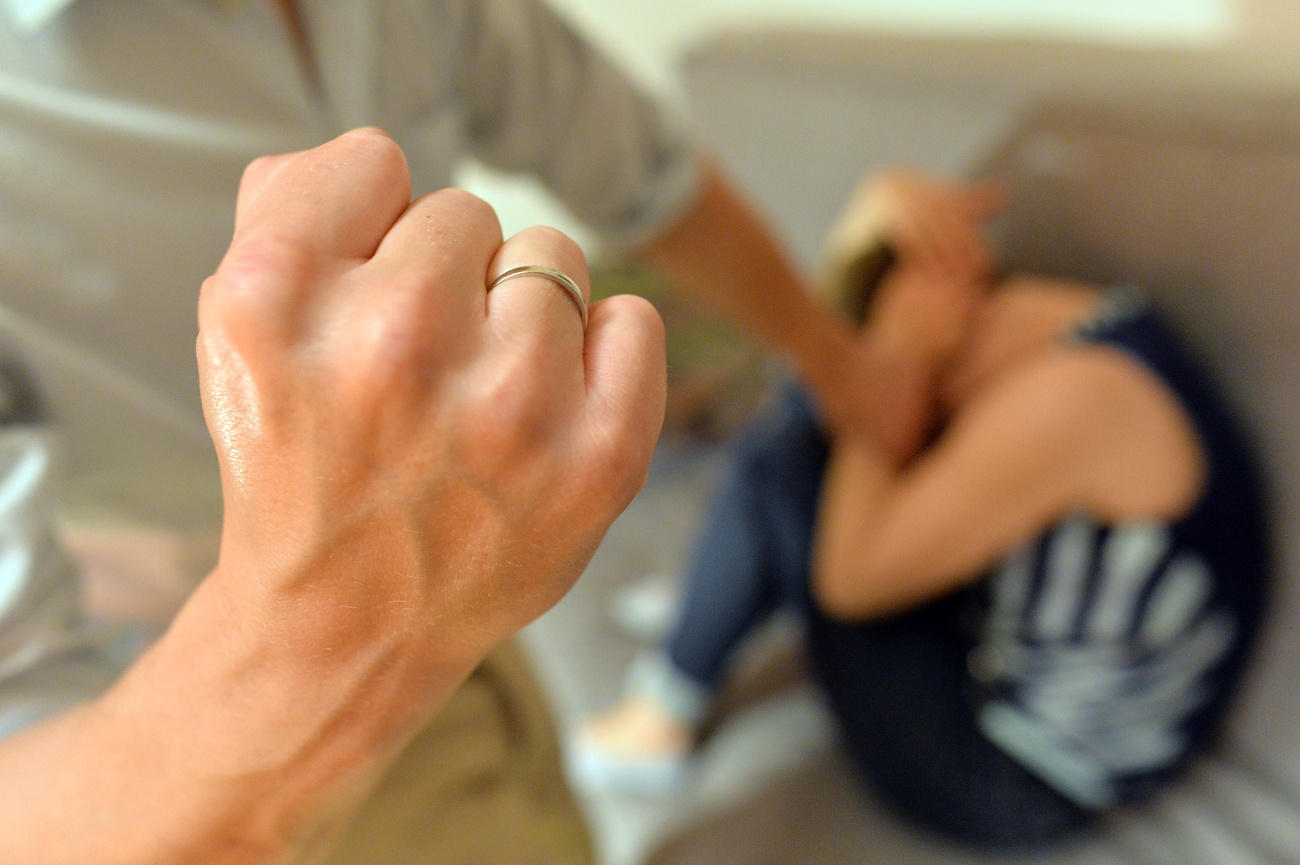
More
Switzerland: higher rate of domestic violence deaths

In compliance with the JTI standards
More: SWI swissinfo.ch certified by the Journalism Trust Initiative









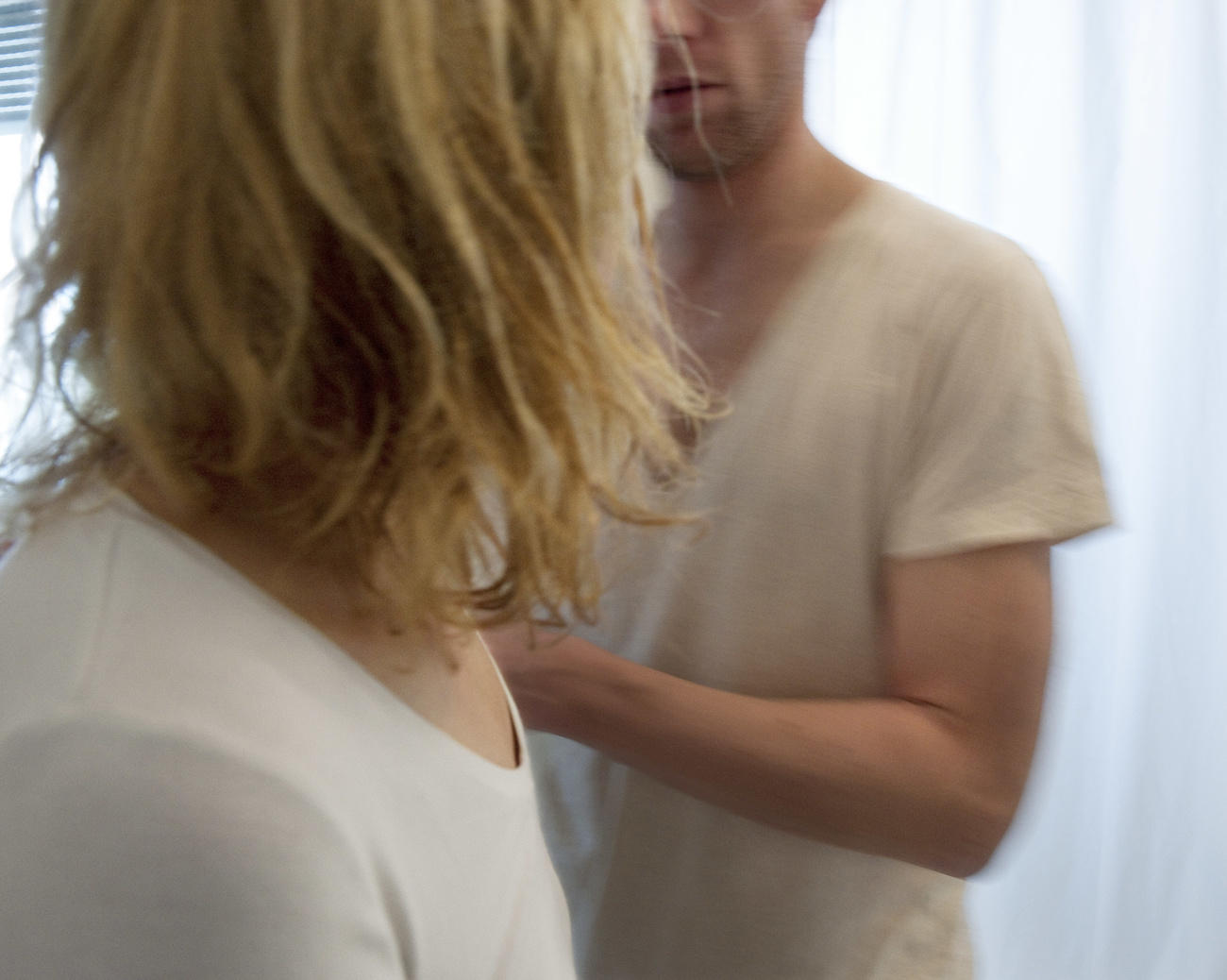
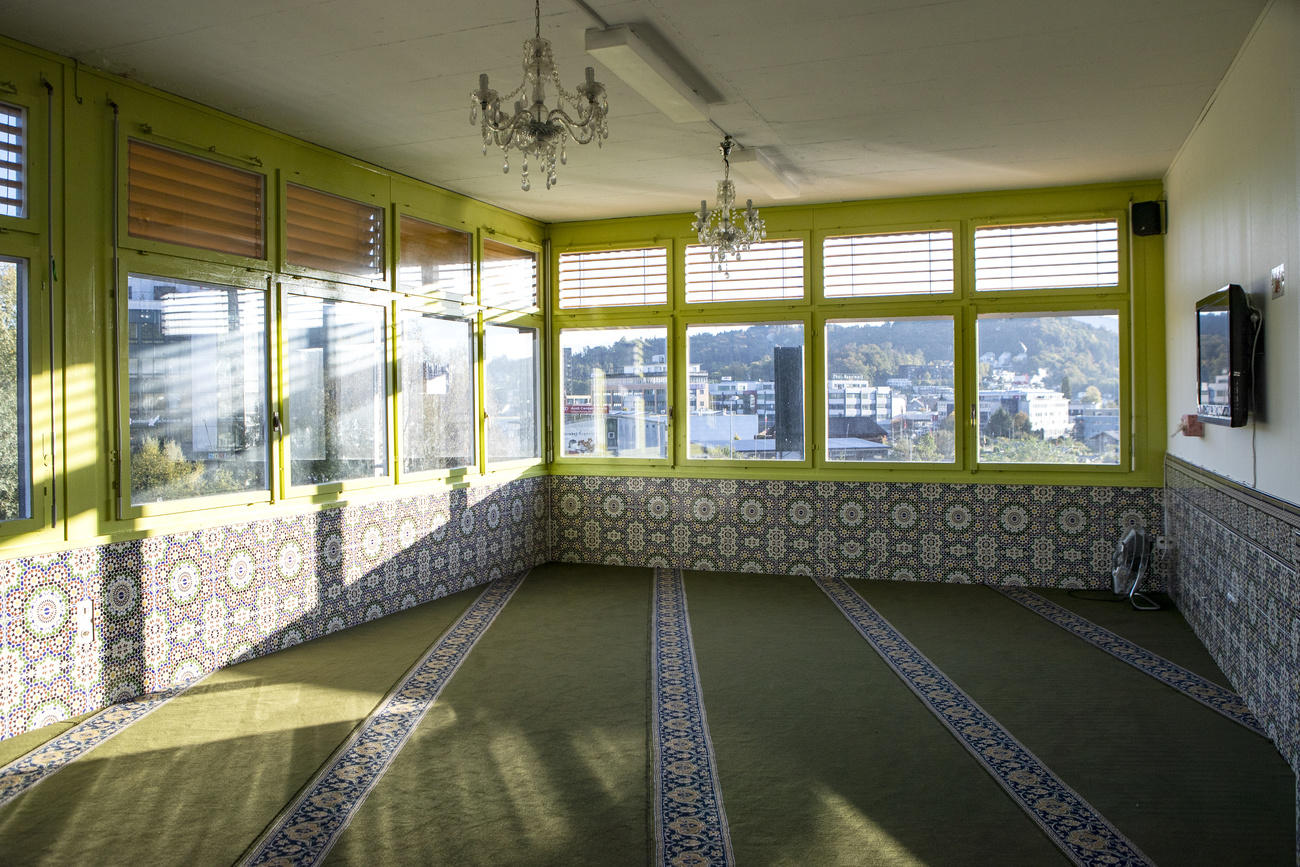
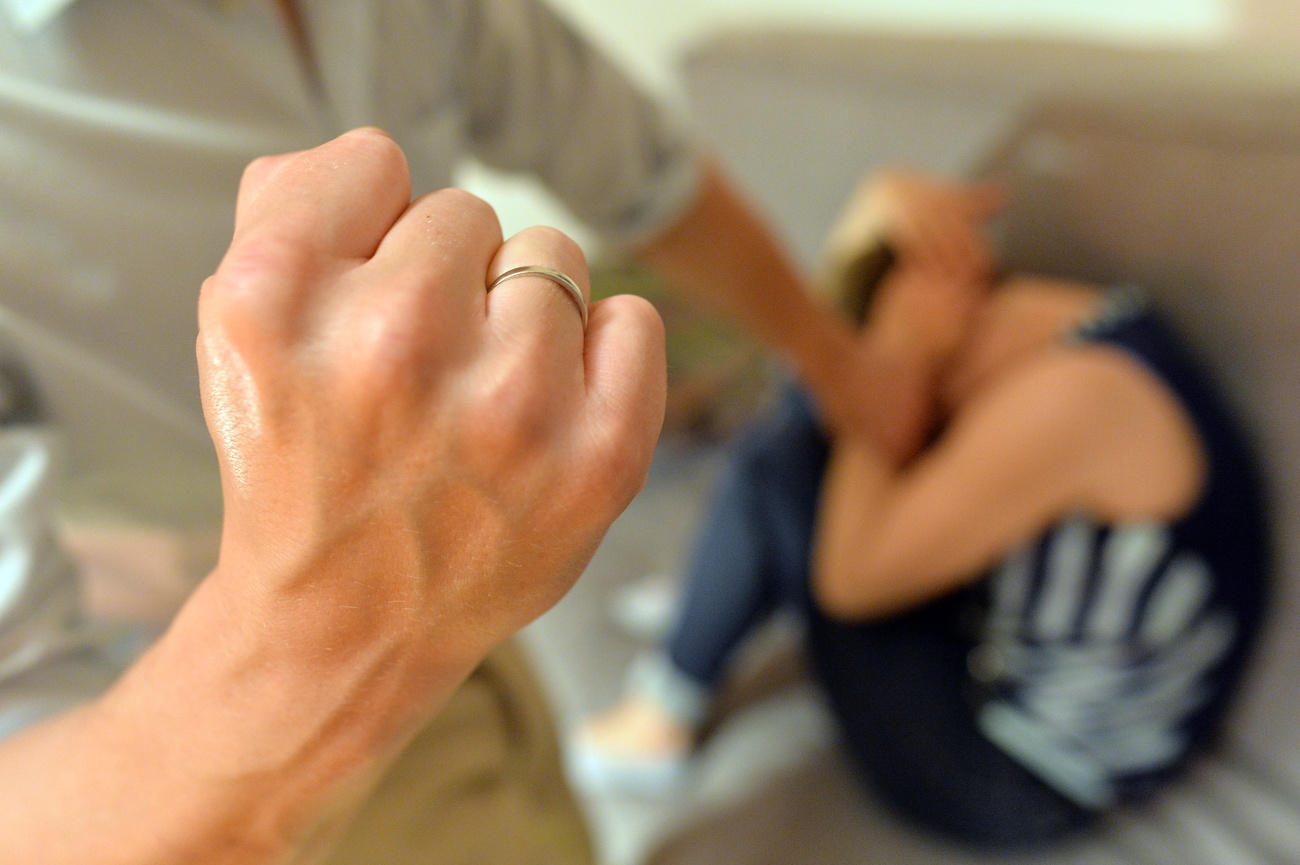
You can find an overview of ongoing debates with our journalists here . Please join us!
If you want to start a conversation about a topic raised in this article or want to report factual errors, email us at english@swissinfo.ch.